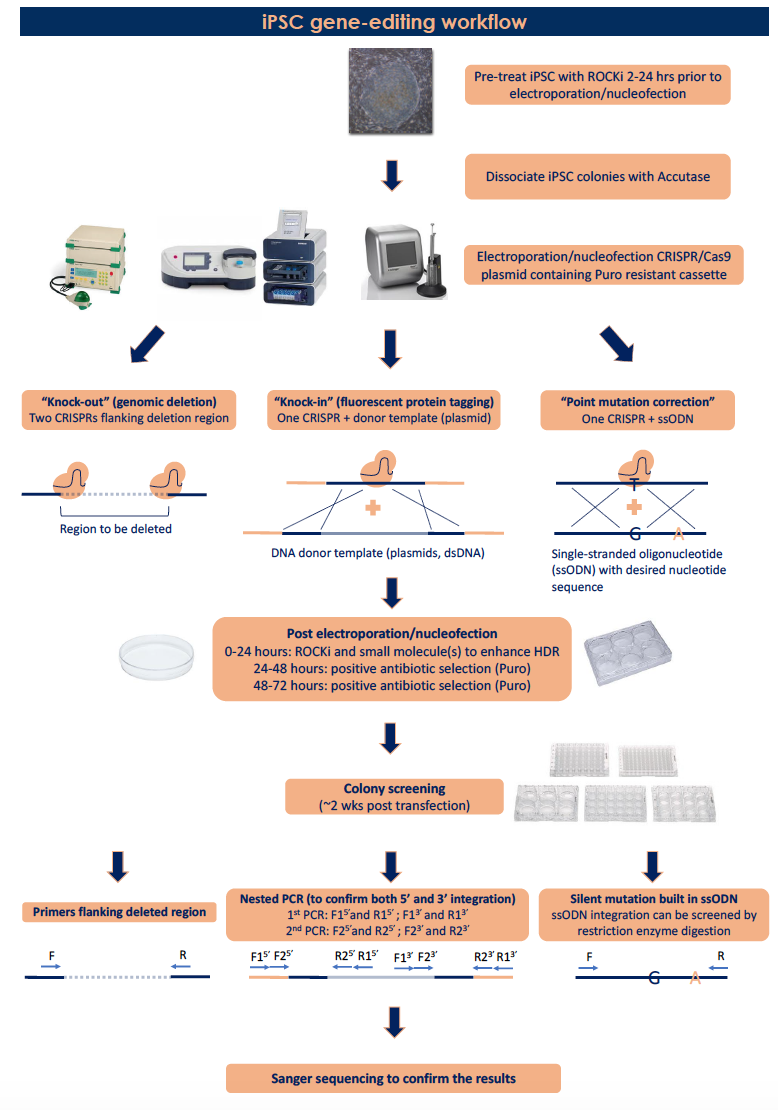.png?mw=800)
Gene editing has transformed the field of biomedical research, enabling precise modifications to DNA. When applied to induced pluripotent stem cells (iPSCs), gene editing becomes a powerful tool for understanding genetic diseases, developing therapies, and advancing regenerative medicine. At the forefront of these innovations, the Coriell Institute offers unmatched expertise in iPSC gene editing, combining cutting-edge technologies with deep scientific knowledge to drive meaningful discoveries.
The integration of CRISPR-Cas9 technology with iPSCs allows researchers to:
This synergy between CRISPR’s precision and iPSCs’ pluripotency has unlocked groundbreaking opportunities in research and medicine, enabling the creation of patient-specific cellular models that accurately represent human biology.
iPSC gene editing provides an unprecedented ability to study genetic disorders in a human cellular context. For example:
Gene-edited iPSCs accelerate drug development by:
The Coriell Institute is a leader in iPSC gene editing, leveraging advanced technologies and rigorous protocols to support groundbreaking research. Our expertise includes:
By combining technical expertise with a commitment to innovation, Coriell empowers researchers to tackle the most pressing challenges in genetic disease research and therapy development.
With ongoing advancements in precision editing, scalability, and differentiation protocols, iPSC gene editing is set to revolutionize biomedicine. The Coriell Institute remains at the forefront of this revolution, enabling researchers to unlock new possibilities in disease modeling, drug discovery, and regenerative medicine.
Whether correcting genetic defects, uncovering molecular pathways, or developing personalized therapies, the synergy between iPSC technology and gene editing is paving the way for a future where genetic diseases are better understood—and more effectively treated.
